What Is the Impact of Artificial Intelligence in Today’s World?
Table of Contents
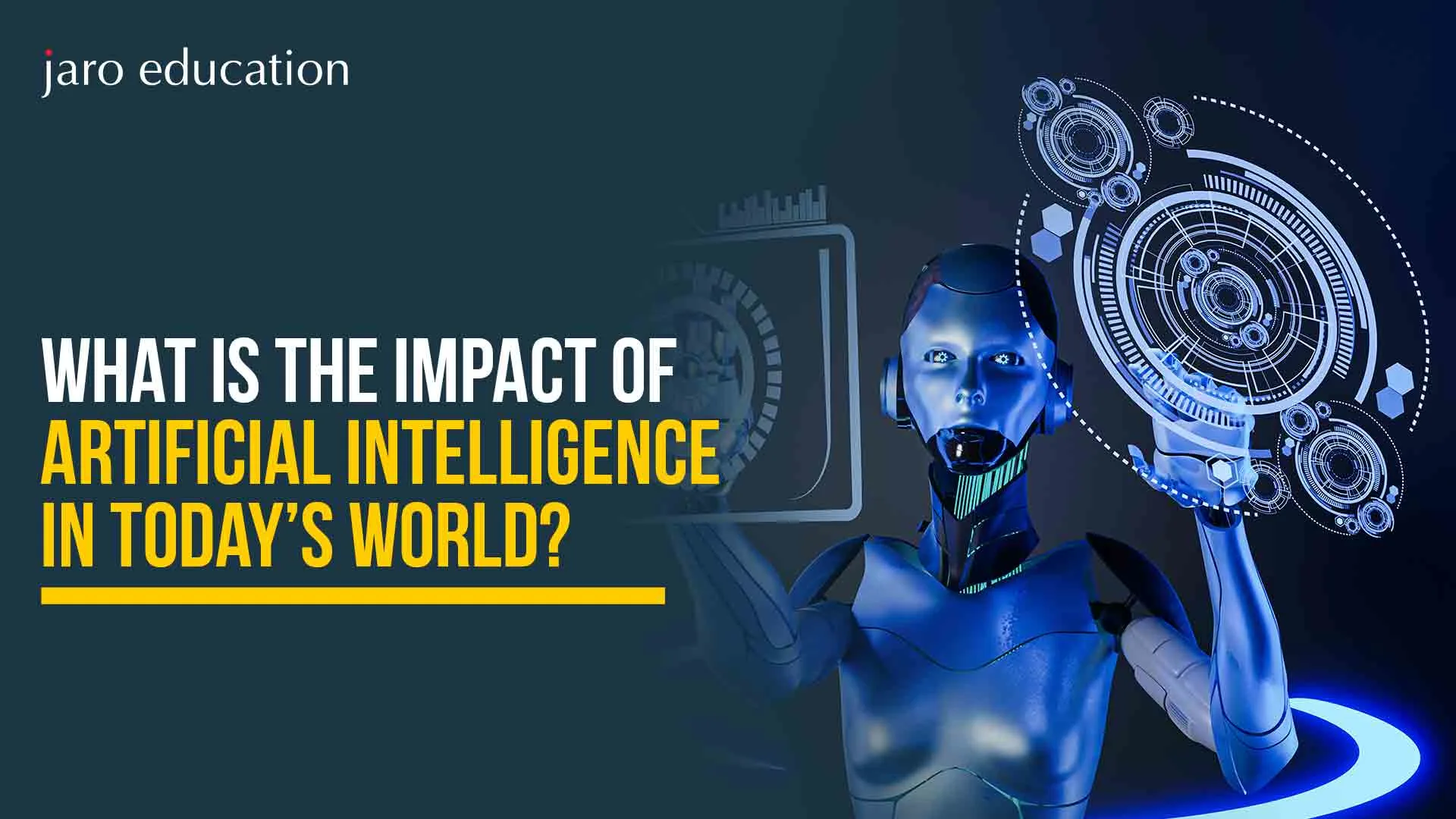
- jaro Education
- 25, October 2021
- 12:00 am
Artificial Intelligence (AI) is no longer a matter of tomorrow, and we are living in that reality now. Our phones contain voice assistants, and they utilize complex algorithms to diagnose diseases. AI is redefining the way we do our jobs, communicate, and live. However, how is artificial intelligence influencing our daily lives and transforming the world?
In this blog, we shall discuss the impact of artificial intelligence on society and the sectors in which it plays a role, and even on people. We shall also examine contemporary studies and the opinions of specialists regarding the impact of artificial intelligence on society, including the positive and the negative impacts.
What is the Impact of Artificial Intelligence?
Artificial Intelligence, or AI, is transforming our way of life, work, and interaction with the world. AI has been integrated into our experience, whether it is in unlocking our phones using face recognition or finding some answers as fast as possible using voice assistants. However, it has much more influence than convenience. AI is aiding physicians to diagnose illnesses at an early age, aiding teachers in classrooms, and even putting businesses in a position to make smarter decisions. Although it has numerous advantages, it is also full of questions regarding employment, privacy, and equality.
Let us have a closer look at the impact of artificial intelligence.
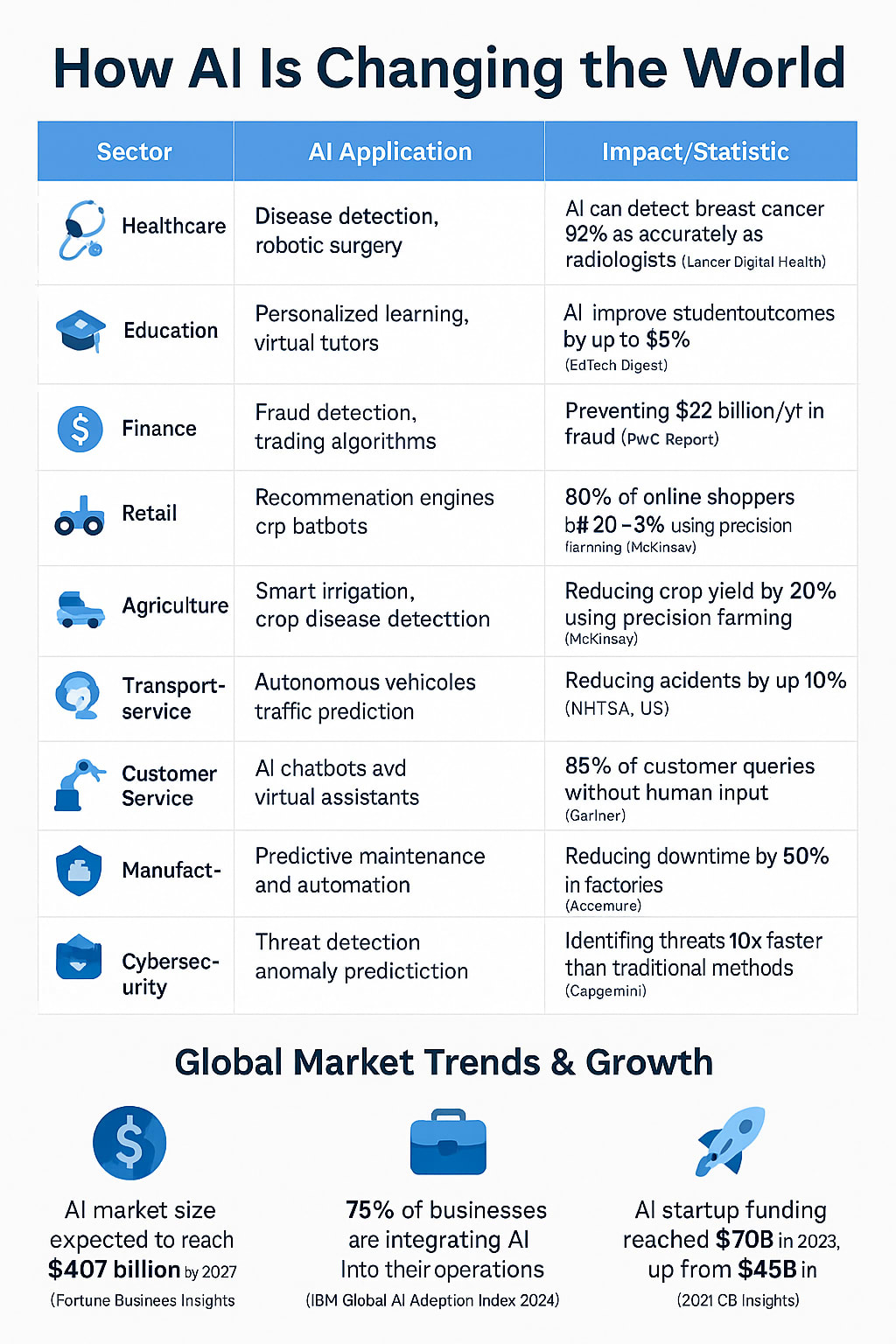
1. How Is the Impact of AI on Education Shaping Future Learning?
The revolutionary use of artificial intelligence in education is ushering in a new dawn of innovation and change in education. With the adaptivity of a personal approach and the streamlining of administrative functions, the application of AI technologies to education is completely redefining a typical educational model by opening new opportunities, such as highly effective data analytics. The benefits that may be gained are more than tremendous, but on the other hand, several ethical questions, precautions when it comes to data privacy, and difficulties that lie in fair access should be raised. The Impact of AI on Education.
Customized Learning Paths
AI can monitor how a student learns and adjust learning speed according to the student’s needs. Tools like ScribeSense or Coursera’s AI system deliver content when users demonstrate readiness based on performance.
Intelligent Tutoring Systems
Chatbots and virtual teaching assistants are an almost immediate solution for responding to questions, reducing the amount of non-educational time for teachers, and providing self-directed, on-demand support for students.
Automating Administrative Tasks
AI allows for automated administrative functions, such as grading exit tickets or arranging parent-teacher meetings, freeing time for teachers to devote to students.
Artificial intelligence in the field of education is contributing toward bridging gaps and improving access, quality, and personalization to make the act of learning much more effective (and inclusive).
2. What Is the Impact of AI on the Job Market and Employment Trends?
Artificial Intelligence is shifting how people work, with the shift being very real. Many companies are using AI for duties that have previously been performed by humans, especially with repetitive tasks like data input, basic customer service, etc., and manufacturing. As a result, there are job losses, and some are being asked to retrain quickly. Not only are jobs being lost, but many more jobs are being created, such as AI trainers, data analysts, and automation managers. In reality, we should acknowledge that those in lower-skill job positions are the most vulnerable, while those who reskill will be able to make the most of the new jobs available. The impact of AI on the Job Market is accelerating the roles that society will have to play in reassessing careers, education, and lifelong learning, as we have never experienced before.
Job Automation
AI is being applied to perform repetitive tasks in fields such as manufacturing, retail, and customer service, displacing jobs.
New Job Roles
Entirely new jobs exist through AI—engineers, machine learning specialists, and data analysts, to name a few, are highly sought after.
Upskill/Reskill
Corporations are investing huge amounts of money in training employees in AI skills, with platforms like LinkedIn Learning and Google’s AI training thriving.
3. What Is the Real Impact of AI in Healthcare Systems?
The impact of AI in Healthcare Systems is revolutionizing healthcare, particularly in terms of early detection and rapid treatment. In many hospitals, AI screening tools use scans and reports to detect conditions like cancer or heart problems more accurately. This can save lives, especially in remote areas without access to expert doctors. However, AI cannot replace care, compassion, or the human touch needed to support patients. Many patients would prefer to talk to a real doctor rather than a chatbot. Access to AI healthcare is also hampered by inequities affecting geographic and economic status—rural and low-income areas often miss out. Regardless, Palms AI will continue to improve and enhance healthcare while reminding ourselves that we must continue to advocate for everyone, not just the privileged few.
Early Detection and Diagnosis
AI algorithms are more accurate and efficient at detecting diseases like cancer, Alzheimer’s, or heart conditions.
Robotic Surgeries and Treatment
AI-based robots can assist doctors in performing complex surgeries with minimal error and faster recovery times.
Virtual Health Assistants
Applications such as Ada Health or Babylon can use AI to evaluate patient symptoms and promote treatment—sometimes before the patient sees a physician.
AI’s integration within the healthcare sphere simply reflects how artificial intelligence is more than just an innovation; it is a lifesaving necessity.
Is AI Going to Substitute Humans?
Here are a few basic questions asked:
- Artificial intelligence can never take over humans.
- It is our cognitive ability that makes a differentiation between us and all the other creatures living on the planet.
- The ability of human beings to experience the emotions of one another gives us feelings that affect our judgments and behaviors.
- That cannot be the case with a machine induced by AI, since the machine is programmed to perform specific chores under specific circumstances. However, it cannot think autonomously or decide.
- Although currently, the impact of artificial intelligence is stealing the jobs of many humans, in the case of customers, they are nearly always satisfied with human beings rather than AIs.
- To give an example, at the moment, customer service executives are being displaced by AIs, particularly chatbots. According to the surveys, most customers would rather speak to someone than chat with a bot. Though they find it convenient to enjoy the immediate reply of the robot, in several cases, a bot is not going to work. You like to resolve a conflict, or when a client has some problems with the product and demands a refund. Here, people would rather get a human being who can reason with them as opposed to a chatbot.
There is a category of career areas that can never be filled by the impact of artificial intelligence. These consist of:
- Engineers:- The art of the engineer is always the art of the maker. And all the things that an engineer can invent are the results of his/her thinking and invention of the objects aimed at solving some problems. An AI cannot create an object by itself without any external influence, as it will never be able to think like a real human.
- Lawyers:- A lawyer is usually required to circumvent the laws and loopholes to rescue their clients. This needs a lot of reasoning capability, which can never be held by an AI.
- Counselors:- A counselor advises individuals regarding their mental problems. They chat with them and advise them and assist them to overcome their grievances, trauma, etc. The machine that is produced by an AI and cannot feel itself will never be able to advise people and offer them mental health recommendations.
Summary
Over the recent past, AI has been the in-thing, and it is taking shape and becoming more universal in the world. But the idea that AI will take over human beings is misplaced, because the fact is that it is human beings who are inventing these impacts of artificial intelligence and coding these algorithms.
Conclusion
So, what is the impact of artificial intelligence? Is it changing the world for the better, or thrusting us down an uncertain path?
Somewhere in the middle lies the answer. AI is a tool—powerful, precise, and omnipresent. It has the potential to improve education, health, agriculture, and job creation—but it also has the potential to exacerbate inequalities and ethical dilemmas if unchecked.
What distinguishes the impact of artificial intelligence is how we choose to harness AI. With smart regulation, inclusiveness and equitable access, and ethical design, the impact of artificial intelligence can be one of our species’ greatest triumphs.
Frequently Asked Questions
The impact of artificial intelligence on society is massive—it’s changing the way we work, communicate, learn, and even receive healthcare. While it offers better efficiency and innovation, it also raises concerns about ethics, privacy, and job displacement.
The impact of AI on education includes personalized learning, intelligent tutoring systems, and automation of administrative tasks. AI tools help students learn at their own pace and provide teachers with data-driven insights.
The impact of AI in education is reshaping teaching methods. Teachers now act as facilitators rather than sole information providers. Institutions use AI to predict student success and develop tailored curricula.
The impact of AI on the job market includes both automation and job creation. While some repetitive jobs are at risk, new roles in AI development, data science, and ethics are emerging. Upskilling is key to adapting to this shift.
The impact of AI in healthcare includes faster and more accurate diagnoses, AI-assisted surgeries, and remote patient monitoring. It helps doctors make better decisions and provides patients with timely care and virtual assistance.
The impact of AI in the food industry can be seen in smart agriculture, quality control, and personalized nutrition. AI optimizes crop yields, detects defects in food, and offers diet recommendations tailored to health data.
It’s making systems smarter and more responsive—from smart cities and traffic management to personalized content on social media and virtual assistants at home.
Artificial intelligence’s effects on society include both advancement and risk. Benefits involve improved healthcare, education, and efficiency. Risks include bias in algorithms, increased surveillance, and ethical dilemmas.
The influence of artificial intelligence drives automation, reduces costs, and improves decision-making in businesses. It enables data-driven strategies and opens new markets through innovation and AI-powered services.
To ensure a positive impact of artificial intelligence, we need strong ethical frameworks, inclusive access to AI tools, upskilling of the workforce, and constant monitoring to reduce algorithmic bias and misinformation.


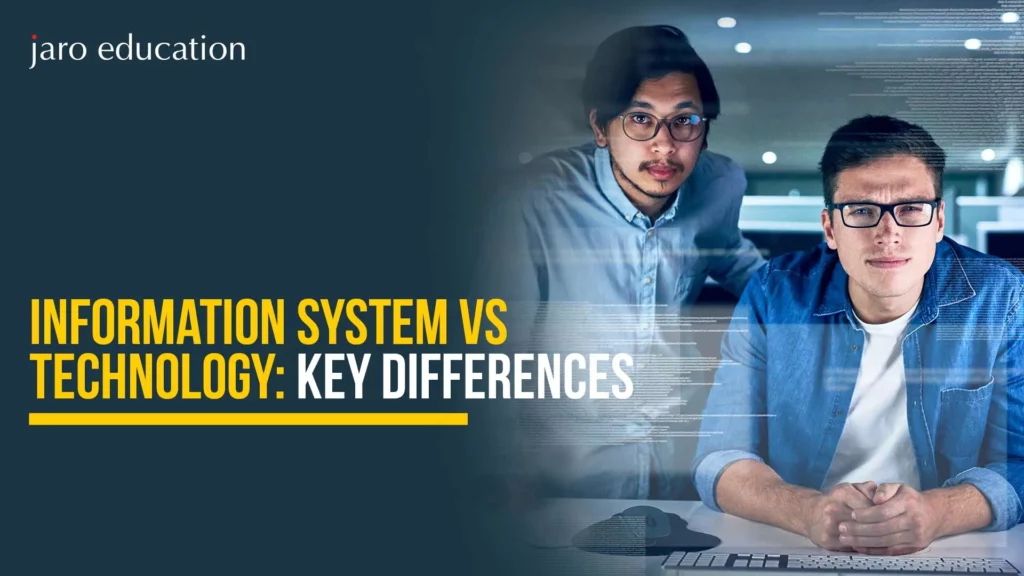
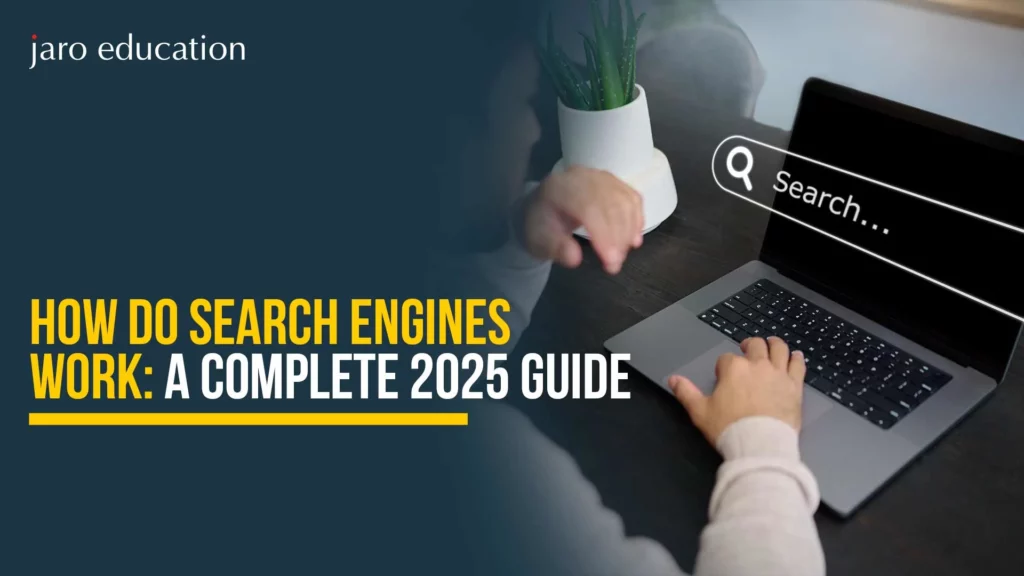

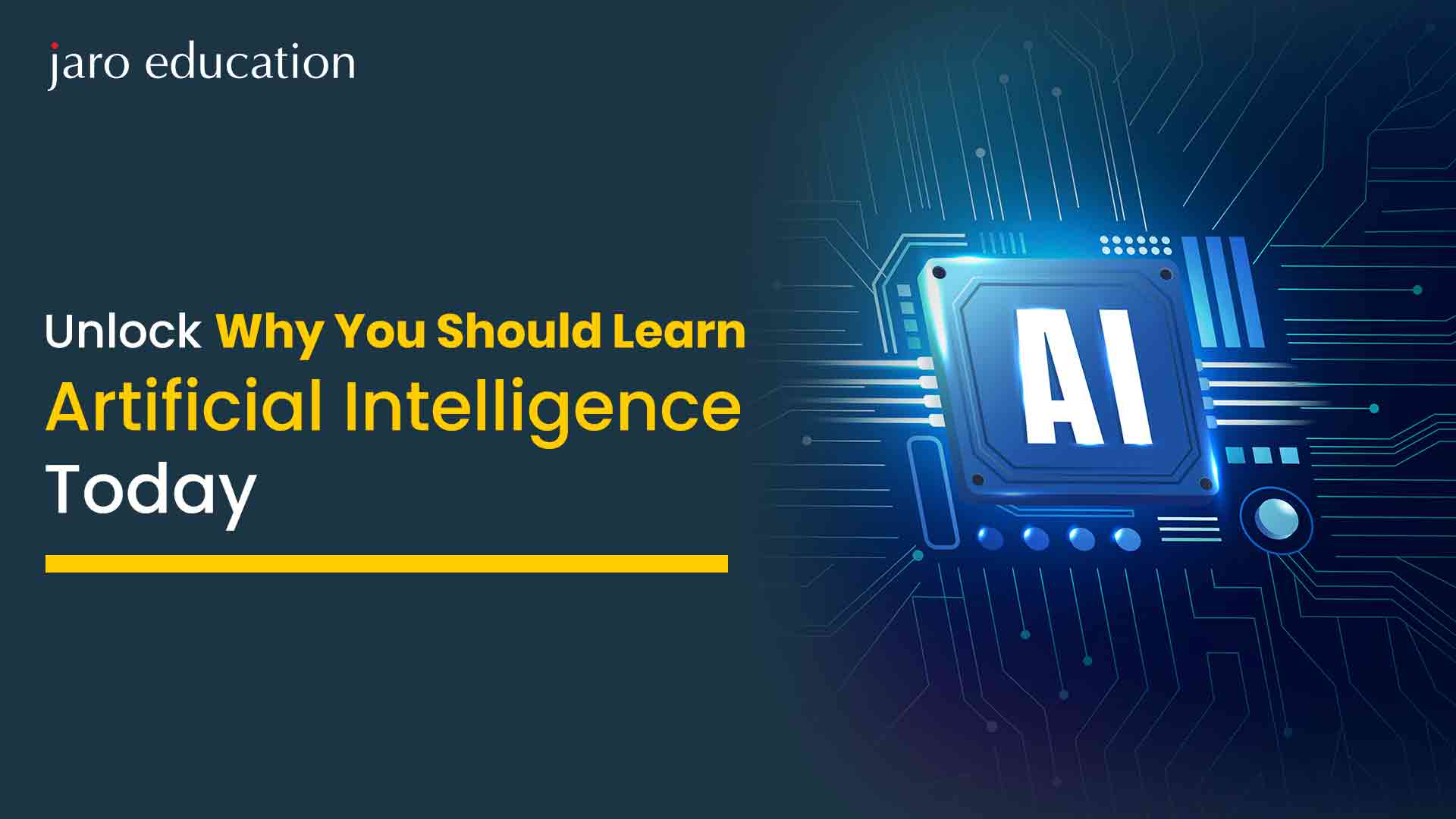
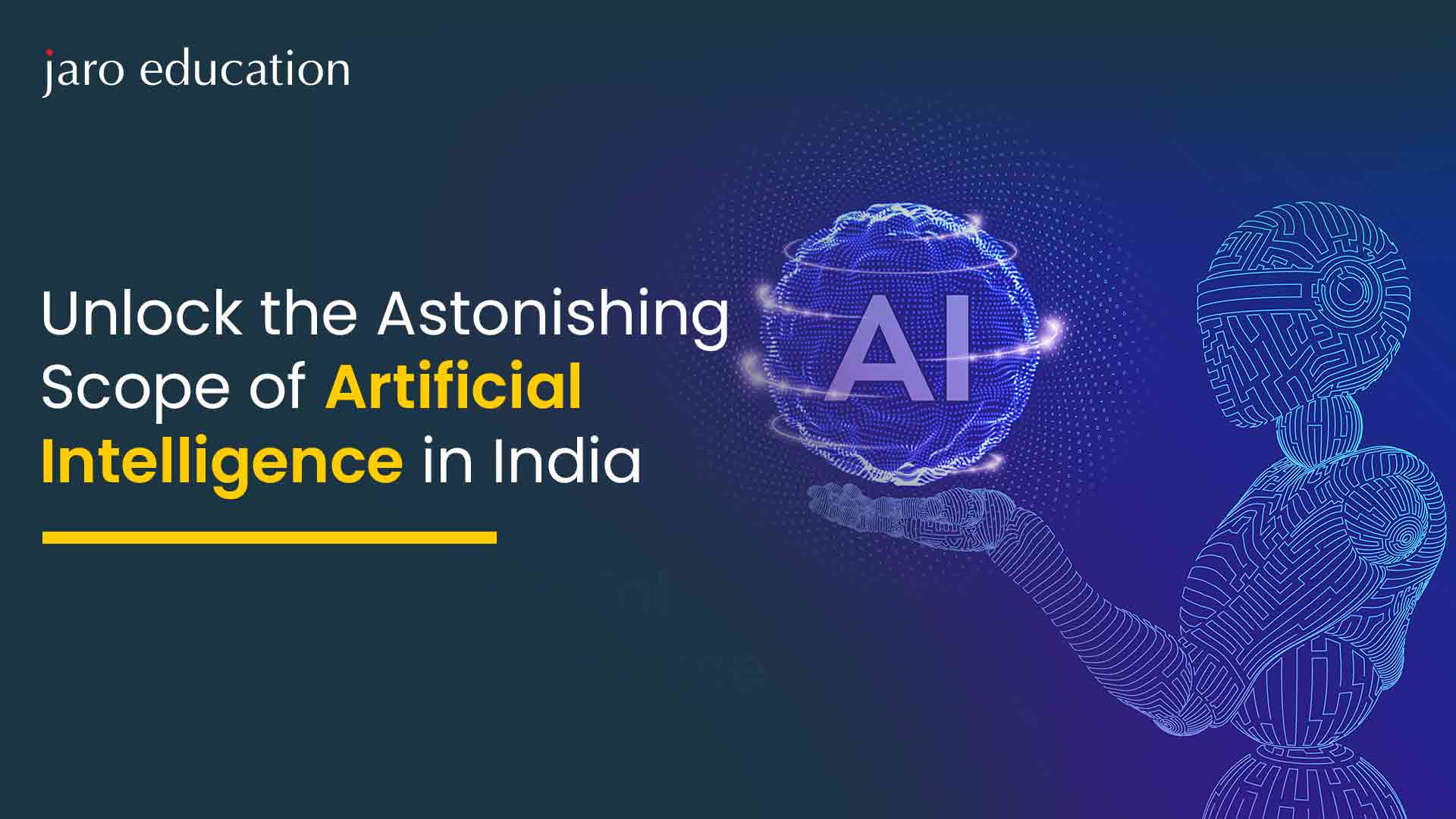
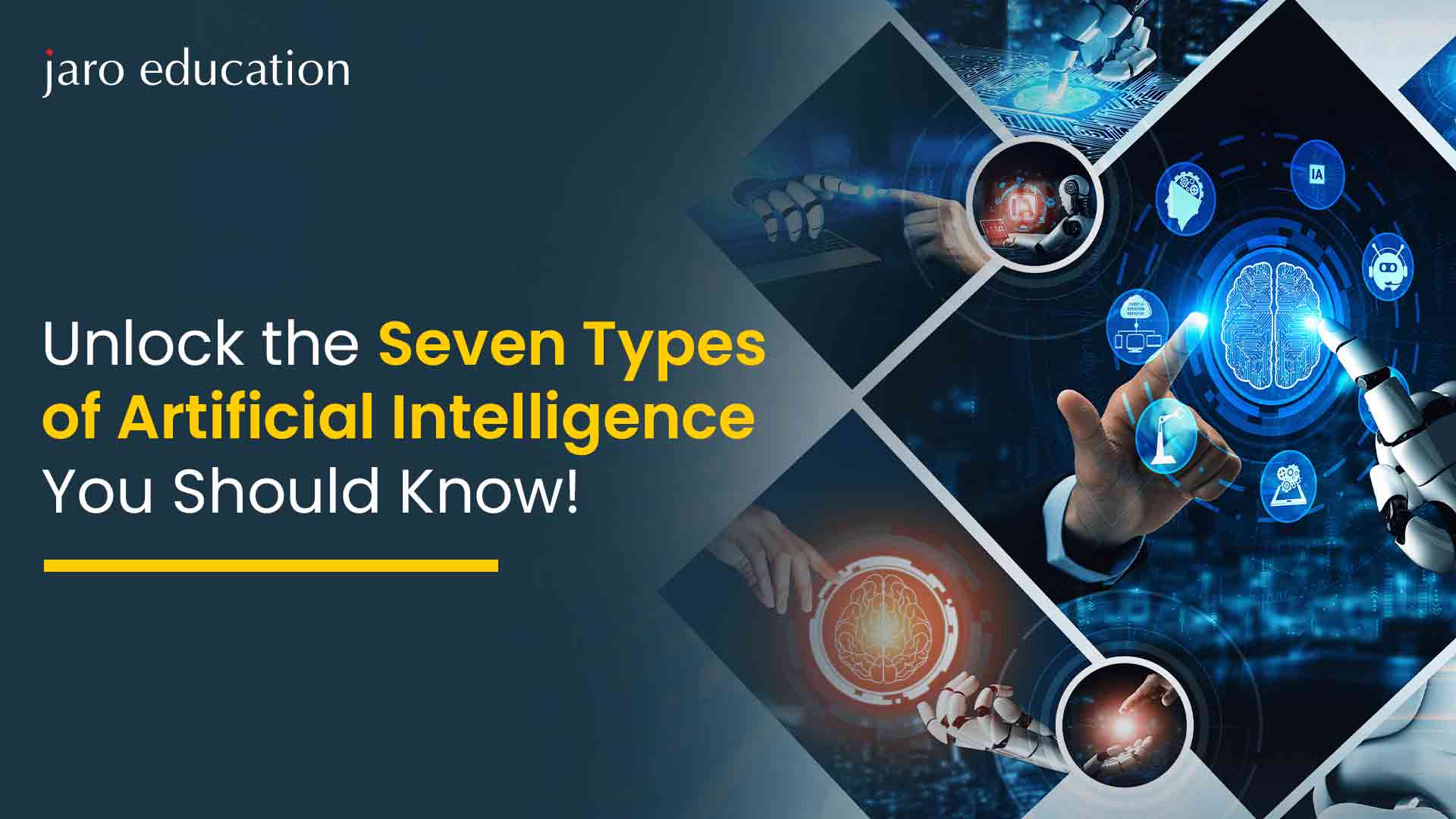
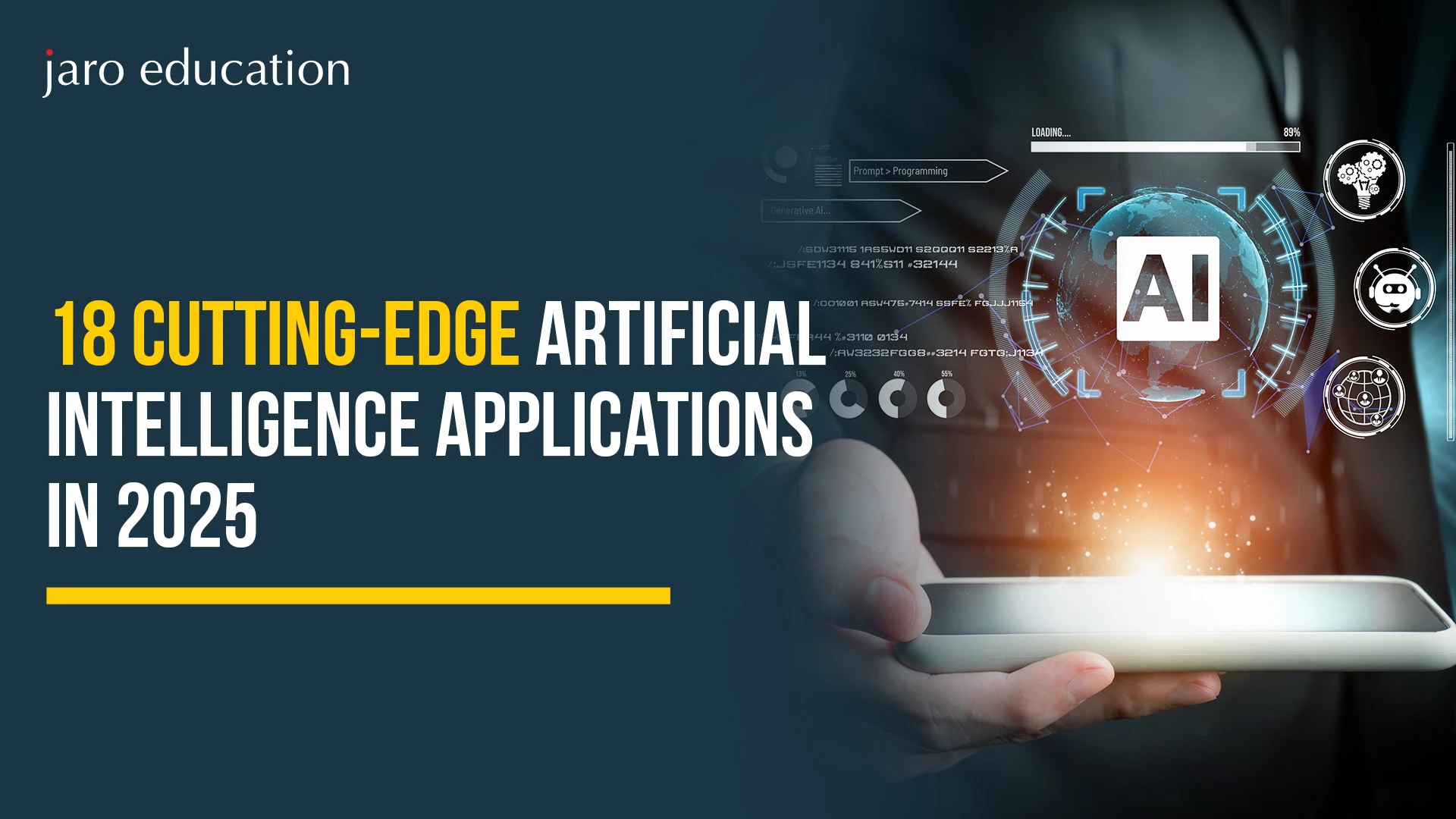


1 thought on “What Is the Impact of Artificial Intelligence in Today’s World?”
Trying something new can indeed be an eye-opening experience! It’s great to hear that you found relaxation and euphoria, which sparked a newfound appreciation for music and art. While the long duration caught you off guard, it’s fantastic that you had a positive introduction to new sensations.